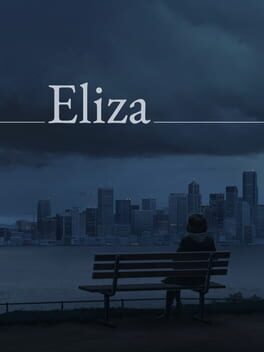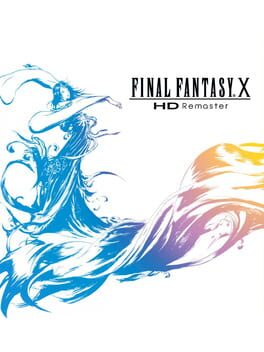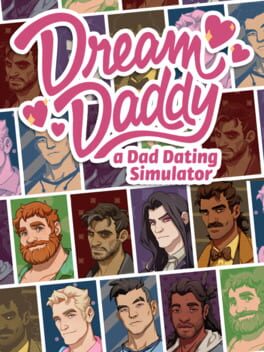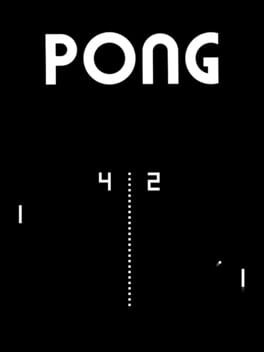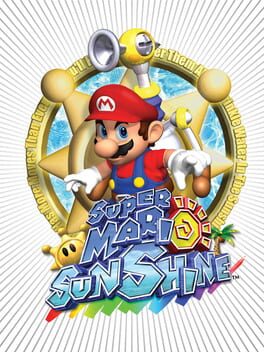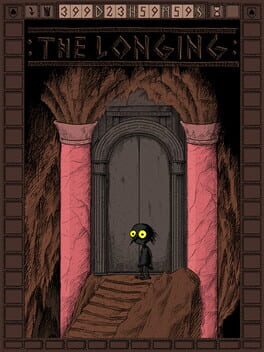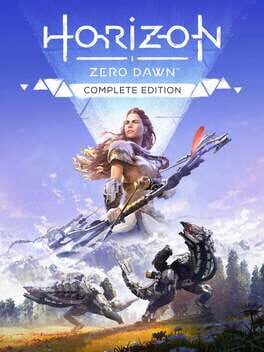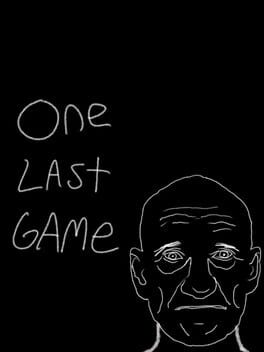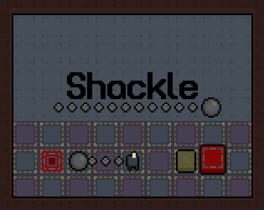Hot_Anarcocoa
BACKER
249 Reviews liked by Hot_Anarcocoa
Eliza
2019
Eliza
2019
A narrowly focused cyberpunk story actually interested in exploring the nuances of increased reliance on technology, while acknowledging the exploitation and apologism they provide for the corporate icons already deeply rooted in our societies. How can we provide the benefits of the former without accounting for the latter?
This review contains spoilers
Wow. Where do I even begin with this game?
I'll just put a disclaimer: my experience with video games generally center around platformers, arcade and casual games - stuff that don't really focus on narrative too much for the sake of letting the player's experience be their own story to some extent.
Final Fantasy X was something of a culture shock, in both how different it was from the Final Fantasy games I'd played before it (I, IV, Chrono Trigger) and how different it was from video games as I'm comfortable with the medium as a whole.
This is perhaps the first game I've ever played that actually felt like a genuine story of characters that's not compromised one way or another to its gameplay... generally for the better.
Seeing the main cast grow and mature past both their former selves, as well as their once-assumed destinies was intense, as was comparing them to the rest of Spira, against its antagonists and the themes of corruption, ignorance, false hope and tradition that arise from that.
Seymour in particular was interesting from that cast of antagonists in how close he was to being sympathizable, how close he was to recognizing the things that Yuna did... yet without the support she had, without love for others, he was blinded by ambition, wrongly assuming the only way to love was to kill.
I love to hate him. The contrast between him and Yuna acts as a reminder to myself in some ways.
Breaking from destiny, choosing one's own path... The Sphere Grid does a good job in translating that thematic idea into gameplay, and I really like it and how much strategy you can put into it and the weapon customization in the endgame, but I do think I'd like to see that implemented in a game less narratively driven, a bit more roguelike, one with... decidedly less cutscenes. I very much enjoyed learning the bosses' strategies and eventually outsmarting them through exploiting all kinds of mechanics, but certain pre-boss cutscenes lose far too much of their power when you watch them for the third time after getting defeated against the boss right near the end.
Still, I think I think the game works very well in the sum of its parts. By the time I was done, I'd grown to love the Al Bhed and what they stood for, I was happy with where my party had gone, both as fighters and as people, and I hope Spira will move on to be a better place in X-2 now that Yevon and its religion have been proven to be a sham; that they will learn to be less judgmental of one another and truly strive for peace.
Final Fantasy X was amazing, and it was a one-of-a-kind experience in my relationship with video games so far. I wish I could embrace everything about it, even down to its more frustrating parts in game design, but it's hard for me to say it's one of the best games I've played alongside my all-time favorites, if only because this isn't the kind of experience I'm used to from video games, and some of that inexperience has let me down in my own personal time with the game.
One day I'll have another sixty hours to invest in this game with better hindsight. I think I'd be ready to absolutely love it then.
I'll just put a disclaimer: my experience with video games generally center around platformers, arcade and casual games - stuff that don't really focus on narrative too much for the sake of letting the player's experience be their own story to some extent.
Final Fantasy X was something of a culture shock, in both how different it was from the Final Fantasy games I'd played before it (I, IV, Chrono Trigger) and how different it was from video games as I'm comfortable with the medium as a whole.
This is perhaps the first game I've ever played that actually felt like a genuine story of characters that's not compromised one way or another to its gameplay... generally for the better.
Seeing the main cast grow and mature past both their former selves, as well as their once-assumed destinies was intense, as was comparing them to the rest of Spira, against its antagonists and the themes of corruption, ignorance, false hope and tradition that arise from that.
Seymour in particular was interesting from that cast of antagonists in how close he was to being sympathizable, how close he was to recognizing the things that Yuna did... yet without the support she had, without love for others, he was blinded by ambition, wrongly assuming the only way to love was to kill.
I love to hate him. The contrast between him and Yuna acts as a reminder to myself in some ways.
Breaking from destiny, choosing one's own path... The Sphere Grid does a good job in translating that thematic idea into gameplay, and I really like it and how much strategy you can put into it and the weapon customization in the endgame, but I do think I'd like to see that implemented in a game less narratively driven, a bit more roguelike, one with... decidedly less cutscenes. I very much enjoyed learning the bosses' strategies and eventually outsmarting them through exploiting all kinds of mechanics, but certain pre-boss cutscenes lose far too much of their power when you watch them for the third time after getting defeated against the boss right near the end.
Still, I think I think the game works very well in the sum of its parts. By the time I was done, I'd grown to love the Al Bhed and what they stood for, I was happy with where my party had gone, both as fighters and as people, and I hope Spira will move on to be a better place in X-2 now that Yevon and its religion have been proven to be a sham; that they will learn to be less judgmental of one another and truly strive for peace.
Final Fantasy X was amazing, and it was a one-of-a-kind experience in my relationship with video games so far. I wish I could embrace everything about it, even down to its more frustrating parts in game design, but it's hard for me to say it's one of the best games I've played alongside my all-time favorites, if only because this isn't the kind of experience I'm used to from video games, and some of that inexperience has let me down in my own personal time with the game.
One day I'll have another sixty hours to invest in this game with better hindsight. I think I'd be ready to absolutely love it then.
EarthBound
1994
I don't know how on earth a game about as mechanically complex as the first Final Fantasy was such a ride.
The only phrase I think I have to describe it is Je ne sais quoi.
There's something Itoi does that just feels so... different, even now with Undertale and all the games that take after Earthbound. It has a personality of its own, from start to horrifying finish.
The only phrase I think I have to describe it is Je ne sais quoi.
There's something Itoi does that just feels so... different, even now with Undertale and all the games that take after Earthbound. It has a personality of its own, from start to horrifying finish.
Pong
1972
Super Mario Sunshine
2002
Uniquely among the Mario games released prior to Galaxy 2, I have no nostalgia for Super Mario Sunshine.
I wasn't around for its reveal and initial release, and I had no way of playing it as a kid - my first playthrough of Sunshine was in 2015, emulated on a computer that could barely run the game at near-full speed with the audio disabled.
But I really enjoyed my time with the game - far more than I did with the Galaxy games - and I've come back to replay it a handful times since, including this playthrough on the rather unfortunate 3D All-Stars collection.
Sunshine is often treated as the black sheep of the series, a janky, unpolished mess compared to the rest of the games - and especially Galaxy right after it, which vastly surpassed it in its aesthetic and supposed scope.
When I say that it's this game that's actually one of my favorite games in the series, I acknowledge this reputation Sunshine has gathered over the years.
In other words, I don't mean to deny the aspects of Sunshine that are noticeably less well thought-out than the rest of the franchise. Let's go on an obligatory quick roll call: the lilypad stage is near impossible to complete normally, adding insult to injury in how long it takes to get there; the watermelon festival is clumsily designed; the Corona Mountain boat is hard to control; the missions are overall too dependent on Shadow Mario chases and red coins... We've all heard these a million times if we've ever discussed Sunshine on the Internet. Let's move on.
It does beg a few questions, though. Why do people complain so much about the lilypad, the pachinko, the watermelon, and all that while conveniently leaving out the fact that most of Super Mario Sunshine's supposed worst shines are completely optional?
The secret shines found around Delfino Plaza, the two bonus shines per course, the 100-coin shines, and each of the twenty-four shine sprites obtained from trading them in at the boathouse - accounting for 70 of Sunshine's 120 shines - are almost completely inconsequential to the game (at most, they let you unlock courses earlier), and a player could easily complete the game with 50 shines collected from the Airstrip, the first seven missions of each course and Corona Mountain.
It seems all too obvious to suggest to anyone who doesn't enjoy those aspects of Super Mario Sunshine: just leave them be!
100% completion seems like the default in 3D platformers ever since games like Super Mario 64 and Banjo-Kazooie emphasized the collection aspect of the genre, but in a world that's increasingly moving towards acceptance that we will never finish every game, even those we start, I don't see the harm in letting those extra shine sprites go, even if someone could argue that some of them are badly made or designed.
I'm not that someone. For context, I've enjoyed my time 100%ing this game far more than I did with Galaxy, and if I were to go back to a 100% playthrough of either it or Odyssey, I would pick Sunshine in a heartbeat.
I will first briefly give credit to the pachinko and say it gets far more hate than it deserves, and that some of Galaxy and Odyssey's more gimmicky missions are not only more obnoxious, but more drawn-out and exhausting—
With my reputation ruined with that one sentence, allow me to explain.
Super Mario Sunshine's biggest strength that no other Mario game accomplishes except for brief instances of Odyssey is its environmental platforming - how it manages to make each location feel like a genuinely believable place within Isle Delfino.
Ricco Harbor and Pinna Park are some of my favorite levels in the entirety of the Mario series in how they manage to naturally bring out Mario's platforming while making everything look like it exists for a purpose beyond being there for Mario to jump on.
While bigger than most Mario maps except some of Odyssey's larger Kingdoms, the courses generally do a good job in dividing themselves into smaller sections within a cohesive map (albeit Pinna Park might go about doing this in a somewhat ham-fisted way), where individual missions can focus on one or two of them each.
One issue I had with Super Mario Odyssey's level design was how too many of them felt like floating landmasses over a bottomless pit: twelve out of fifteen of its main kingdoms followed this design to some capacity, with only the Wooded, Lost and Luncheon Kingdoms really providing an interesting twist on this idea. Sunshine almost completely avoids this issue, with Pianta Village being the single place being designed this way. In exchange, Sunshine often uses its verticality as consequences for failing platforming challenges, with conveniences like tightropes and the Rocket Nozzle being placed to ensure players never lose too much progress for falling down - it also often ensures that players won't suffer from too much fall damage by placing water around the map, which ties into the aesthetic of the game quite brilliantly.
Speaking of aesthetic - I wouldn't give Sunshine's environmental design as much praise if it weren't for their overarching nature: there's a lot of detail put in to make it feel like (almost) everything exists within the same landmass, like how you can see Ricco Harbor from Bianco Hills. There hasn't been this much cohesion in a Mario game since Super Mario World, (another game that debatably suffered for it compared to Super Mario Bros. 3's diversity in locales) and it really goes a long way to sell the idea that Isle Delfino is a living, breathing place compared to the abstract, bizzare themes later found in Super Mario Galaxy that attempt to separate its environments as far apart as it can.
It's because it feels like a living place that I feel incentivized to explore the courses and comb every part of the island for coins, both blue and yellow - less because I'm expecting a reward like in the other Mario games, and more because it lets me live out an inherent feeling of exploration that I couldn't really have when I'd go on holidays as a kid and have my hand held the entire time, the feeling that Mario games seem to have a complicated relationship with.
It's because it feels like a living place that I can forgive the wacky Delfino people from having weird customs like the watermelon festival, blooper races; that I don't mind the fact that Mario's being scammed into helping the Sirena Beach hotel, that everything really is a little bit jank, but maybe it's fine...
Because that's how things are meant to be in Isle Delfino.
So in Rome, I'll do what the Romans do,
and enjoy it all.
I wasn't around for its reveal and initial release, and I had no way of playing it as a kid - my first playthrough of Sunshine was in 2015, emulated on a computer that could barely run the game at near-full speed with the audio disabled.
But I really enjoyed my time with the game - far more than I did with the Galaxy games - and I've come back to replay it a handful times since, including this playthrough on the rather unfortunate 3D All-Stars collection.
Sunshine is often treated as the black sheep of the series, a janky, unpolished mess compared to the rest of the games - and especially Galaxy right after it, which vastly surpassed it in its aesthetic and supposed scope.
When I say that it's this game that's actually one of my favorite games in the series, I acknowledge this reputation Sunshine has gathered over the years.
In other words, I don't mean to deny the aspects of Sunshine that are noticeably less well thought-out than the rest of the franchise. Let's go on an obligatory quick roll call: the lilypad stage is near impossible to complete normally, adding insult to injury in how long it takes to get there; the watermelon festival is clumsily designed; the Corona Mountain boat is hard to control; the missions are overall too dependent on Shadow Mario chases and red coins... We've all heard these a million times if we've ever discussed Sunshine on the Internet. Let's move on.
It does beg a few questions, though. Why do people complain so much about the lilypad, the pachinko, the watermelon, and all that while conveniently leaving out the fact that most of Super Mario Sunshine's supposed worst shines are completely optional?
The secret shines found around Delfino Plaza, the two bonus shines per course, the 100-coin shines, and each of the twenty-four shine sprites obtained from trading them in at the boathouse - accounting for 70 of Sunshine's 120 shines - are almost completely inconsequential to the game (at most, they let you unlock courses earlier), and a player could easily complete the game with 50 shines collected from the Airstrip, the first seven missions of each course and Corona Mountain.
It seems all too obvious to suggest to anyone who doesn't enjoy those aspects of Super Mario Sunshine: just leave them be!
100% completion seems like the default in 3D platformers ever since games like Super Mario 64 and Banjo-Kazooie emphasized the collection aspect of the genre, but in a world that's increasingly moving towards acceptance that we will never finish every game, even those we start, I don't see the harm in letting those extra shine sprites go, even if someone could argue that some of them are badly made or designed.
I'm not that someone. For context, I've enjoyed my time 100%ing this game far more than I did with Galaxy, and if I were to go back to a 100% playthrough of either it or Odyssey, I would pick Sunshine in a heartbeat.
I will first briefly give credit to the pachinko and say it gets far more hate than it deserves, and that some of Galaxy and Odyssey's more gimmicky missions are not only more obnoxious, but more drawn-out and exhausting—
With my reputation ruined with that one sentence, allow me to explain.
Super Mario Sunshine's biggest strength that no other Mario game accomplishes except for brief instances of Odyssey is its environmental platforming - how it manages to make each location feel like a genuinely believable place within Isle Delfino.
Ricco Harbor and Pinna Park are some of my favorite levels in the entirety of the Mario series in how they manage to naturally bring out Mario's platforming while making everything look like it exists for a purpose beyond being there for Mario to jump on.
While bigger than most Mario maps except some of Odyssey's larger Kingdoms, the courses generally do a good job in dividing themselves into smaller sections within a cohesive map (albeit Pinna Park might go about doing this in a somewhat ham-fisted way), where individual missions can focus on one or two of them each.
One issue I had with Super Mario Odyssey's level design was how too many of them felt like floating landmasses over a bottomless pit: twelve out of fifteen of its main kingdoms followed this design to some capacity, with only the Wooded, Lost and Luncheon Kingdoms really providing an interesting twist on this idea. Sunshine almost completely avoids this issue, with Pianta Village being the single place being designed this way. In exchange, Sunshine often uses its verticality as consequences for failing platforming challenges, with conveniences like tightropes and the Rocket Nozzle being placed to ensure players never lose too much progress for falling down - it also often ensures that players won't suffer from too much fall damage by placing water around the map, which ties into the aesthetic of the game quite brilliantly.
Speaking of aesthetic - I wouldn't give Sunshine's environmental design as much praise if it weren't for their overarching nature: there's a lot of detail put in to make it feel like (almost) everything exists within the same landmass, like how you can see Ricco Harbor from Bianco Hills. There hasn't been this much cohesion in a Mario game since Super Mario World, (another game that debatably suffered for it compared to Super Mario Bros. 3's diversity in locales) and it really goes a long way to sell the idea that Isle Delfino is a living, breathing place compared to the abstract, bizzare themes later found in Super Mario Galaxy that attempt to separate its environments as far apart as it can.
It's because it feels like a living place that I feel incentivized to explore the courses and comb every part of the island for coins, both blue and yellow - less because I'm expecting a reward like in the other Mario games, and more because it lets me live out an inherent feeling of exploration that I couldn't really have when I'd go on holidays as a kid and have my hand held the entire time, the feeling that Mario games seem to have a complicated relationship with.
It's because it feels like a living place that I can forgive the wacky Delfino people from having weird customs like the watermelon festival, blooper races; that I don't mind the fact that Mario's being scammed into helping the Sirena Beach hotel, that everything really is a little bit jank, but maybe it's fine...
Because that's how things are meant to be in Isle Delfino.
So in Rome, I'll do what the Romans do,
and enjoy it all.
Playing through Dark Souls for the first time is such an emotional experience. There is no feeling of dread quite like being far from your previous bonfire, running low on estus, unsure when your next warm, momentary salvation will appear, just like there is no feeling of relief quite like when you finally find that next bonfire, spotting it in the corner of your eye, and you know that rest is near if you can just manage that final, short leg of the journey.
The thrill of narrowly dodging an attack as you just barely cling onto life, the terror of fighting close to a precipice knowing that the slightest misstep spells doom, the curiosity and caution with which you approach nightmarish creatures whose capabilities you don't quite know yet, the sheer joy, elation, when that boss you've struggled against a few times now, that you've put in time and effort trying to learn and understand, finally succumbs to your blade. Dark Souls understands how to not be difficult for difficulty's sake, but instead how to use difficulty as a way to instil very specific, powerful emotions in its player. A big part of the reason some of these locations are able to make you feel so vulnerable is because you quite literally are.
This emotionality is aided by quite how immersive the setting is. The world of Lordran is just so evocative, the way all these areas manage to tangle together into one cohesive whole via myriad shortcuts, views into far-off places that you can almost certainly reach and more broadly a sense of the map as a whole and how all these places relate just making sense. It feels like so many of these places have their own stories to tell, the characters you meet have their own lives apart from just what you see, and there's a deep sense of history here dripping from near-everything; by the end of the game it's hard not to find yourself reading through the flavour text on the various equipment and items you find just to gain even an inkling more of an idea as to how everything fits together, seeking insight into what stories existed so very long before your arrival.
Dark Souls is far from a perfect game. In a broad sense I think some of its systems could do with being explained at least a little more than they currently are. On a more specific level, the game definitely derails in quality in the last third of the core-game as you hunt the Lord Souls. I don't think this is nearly as disastrous as people often claim, mostly just Lost Izalith and Crystal Caves come out looking very unfinished and gimmicky respectively, but there's definitely a sense that the well thought out and almost playful enemy placement up until this point starts to slip away. By then I was already so in love with this world though, its sheer imagination and the discoveries and secrets that feel like they wait around every corner, that I was left in a very forgiving mood towards any missteps, and frankly the DLC that follows this up is so incredible that it does a lot of work redeeming things regardless.
I think the only thing that makes me truly sad about Dark Souls is that I won't get to experience this world for the first time again. This world has a potent mix of horror and wonder to it, with so many mysteries begging for you to try and wrap your head around them, and whilst I can fully believe that other games may have iterated on the mechanics of this game in very effective ways, it is this sense of discovery and the extraordinary worldbuilding that enables this which makes this game endure.
The thrill of narrowly dodging an attack as you just barely cling onto life, the terror of fighting close to a precipice knowing that the slightest misstep spells doom, the curiosity and caution with which you approach nightmarish creatures whose capabilities you don't quite know yet, the sheer joy, elation, when that boss you've struggled against a few times now, that you've put in time and effort trying to learn and understand, finally succumbs to your blade. Dark Souls understands how to not be difficult for difficulty's sake, but instead how to use difficulty as a way to instil very specific, powerful emotions in its player. A big part of the reason some of these locations are able to make you feel so vulnerable is because you quite literally are.
This emotionality is aided by quite how immersive the setting is. The world of Lordran is just so evocative, the way all these areas manage to tangle together into one cohesive whole via myriad shortcuts, views into far-off places that you can almost certainly reach and more broadly a sense of the map as a whole and how all these places relate just making sense. It feels like so many of these places have their own stories to tell, the characters you meet have their own lives apart from just what you see, and there's a deep sense of history here dripping from near-everything; by the end of the game it's hard not to find yourself reading through the flavour text on the various equipment and items you find just to gain even an inkling more of an idea as to how everything fits together, seeking insight into what stories existed so very long before your arrival.
Dark Souls is far from a perfect game. In a broad sense I think some of its systems could do with being explained at least a little more than they currently are. On a more specific level, the game definitely derails in quality in the last third of the core-game as you hunt the Lord Souls. I don't think this is nearly as disastrous as people often claim, mostly just Lost Izalith and Crystal Caves come out looking very unfinished and gimmicky respectively, but there's definitely a sense that the well thought out and almost playful enemy placement up until this point starts to slip away. By then I was already so in love with this world though, its sheer imagination and the discoveries and secrets that feel like they wait around every corner, that I was left in a very forgiving mood towards any missteps, and frankly the DLC that follows this up is so incredible that it does a lot of work redeeming things regardless.
I think the only thing that makes me truly sad about Dark Souls is that I won't get to experience this world for the first time again. This world has a potent mix of horror and wonder to it, with so many mysteries begging for you to try and wrap your head around them, and whilst I can fully believe that other games may have iterated on the mechanics of this game in very effective ways, it is this sense of discovery and the extraordinary worldbuilding that enables this which makes this game endure.
The Longing
2020
I have spectacularly conflicting feelings about this game.
My first few hours with The Longing were something very strange and special. Those first couple days of exploring this underground cave system, looking for purpose, and trying to see all the grim, lifeless wonder you can find down there, were meditative, mystifying and at times even magical. In these opening hours The Longing has a thick atmosphere of loneliness, solitude and yearning, and I was left wanting to spend more time in this world exploring these emotions.
After those early couple days though, a little over a three months ago, the game lost and never really regained that sense of wonder. There are two big reasons, the first being the time-gating the game utilises to stretch its content out over its advertised 400 days. You'll find areas you can't access until a week, two weeks or even a month after you initially discover them. The justifications for these are often very entertaining (well, I have to wait for moss to grow over that rock down there so that I can land on it safely, should take about two weeks), and this delightful mix of dry and absurdist humour is laced throughout the whole game, but the effect these enforced waits had on my playthrough were disastrous.
Whenever I'd finish all the content I could find I would leave the game for a couple weeks to come back post-time-gate, invariably forget that I was meant to return so leave the game waiting twice as long as I'd intended, would have forgotten a lot about the world and its layout by the time I did return, and would then be impatient to get to the new content having waited a few weeks to be able to access it. The ways the game asks you to be patient when playing it largely worked for my early days with it, encouraging the meditative tone I relished there, but the ways it encourages patience on a wider more meta level asking you to wait a substantial amount of time to access content were greatly to its detriment.
The other problem is that the game's attitude towards patience and waiting whilst playing was just pushed too far for me beyond a certain point in the game, around about the point when I found the mattock. Breaking crystals with the mattock can often take ten minutes, digging through walls can be similarly problematic, and that's not to get into the Hall of Eternity. I'm one of the people who found the meditative nature of the early game really rewarding and even I was ultimately forced to read whilst my shade did things, or to turn off the game whenever a particularly long task was initiated with the intent of returning later once my Shade had completed it.
I get what the creators were going for with all this, and I'm glad it seemed to resonate with some people very strongly, but ultimately I just wanted to be able to immerse myself in this world, my Shade's explorations, and the strange, ominous mood found here, and found the game pushing back against that frustrating. My first five hours of playtime were spent over my first couple days of playing and were very enjoyable; my latter five spread over three and a bit months ultimately resulting in me going for the worst ending as I felt like I had been done with the game for a long time already.
My first few hours with The Longing were something very strange and special. Those first couple days of exploring this underground cave system, looking for purpose, and trying to see all the grim, lifeless wonder you can find down there, were meditative, mystifying and at times even magical. In these opening hours The Longing has a thick atmosphere of loneliness, solitude and yearning, and I was left wanting to spend more time in this world exploring these emotions.
After those early couple days though, a little over a three months ago, the game lost and never really regained that sense of wonder. There are two big reasons, the first being the time-gating the game utilises to stretch its content out over its advertised 400 days. You'll find areas you can't access until a week, two weeks or even a month after you initially discover them. The justifications for these are often very entertaining (well, I have to wait for moss to grow over that rock down there so that I can land on it safely, should take about two weeks), and this delightful mix of dry and absurdist humour is laced throughout the whole game, but the effect these enforced waits had on my playthrough were disastrous.
Whenever I'd finish all the content I could find I would leave the game for a couple weeks to come back post-time-gate, invariably forget that I was meant to return so leave the game waiting twice as long as I'd intended, would have forgotten a lot about the world and its layout by the time I did return, and would then be impatient to get to the new content having waited a few weeks to be able to access it. The ways the game asks you to be patient when playing it largely worked for my early days with it, encouraging the meditative tone I relished there, but the ways it encourages patience on a wider more meta level asking you to wait a substantial amount of time to access content were greatly to its detriment.
The other problem is that the game's attitude towards patience and waiting whilst playing was just pushed too far for me beyond a certain point in the game, around about the point when I found the mattock. Breaking crystals with the mattock can often take ten minutes, digging through walls can be similarly problematic, and that's not to get into the Hall of Eternity. I'm one of the people who found the meditative nature of the early game really rewarding and even I was ultimately forced to read whilst my shade did things, or to turn off the game whenever a particularly long task was initiated with the intent of returning later once my Shade had completed it.
I get what the creators were going for with all this, and I'm glad it seemed to resonate with some people very strongly, but ultimately I just wanted to be able to immerse myself in this world, my Shade's explorations, and the strange, ominous mood found here, and found the game pushing back against that frustrating. My first five hours of playtime were spent over my first couple days of playing and were very enjoyable; my latter five spread over three and a bit months ultimately resulting in me going for the worst ending as I felt like I had been done with the game for a long time already.
I gave it a good fifteen hours but was bored. It's not terrible or anything, there's just nothing that feels new or interesting for me.
Feels like another game that's a variation on the same open-world "narrative epic" I've played a thousand times before. Picking shit up and crafting. Pinging my radar thing to find items, climbing big shit to unlock map stuff. Repeat.
No thank you.
Feels like another game that's a variation on the same open-world "narrative epic" I've played a thousand times before. Picking shit up and crafting. Pinging my radar thing to find items, climbing big shit to unlock map stuff. Repeat.
No thank you.
Undertale
2015
Man, I regret being such a cynic towards this game during its peak and never giving it a fair shot. Chalk it up to being an ignorant teen, but I now see this game in an entirely new light. Everything about it just resonates so well with me in a way that I honestly can't describe. Seriously, go play this game and don't let anyone convince you that this is nothing short of a masterpiece.
One Last Game
2020
Final Fantasy VII
1997
I honestly really enjoyed my time with this one. Whatever minor issues I had were completely overshadowed by an engaging story with characters I adored getting to know. The only reason I'm abandoning it however is due to the fact that after taking a week-long break from the game, I simply couldn't remember what it was I was supposed to be doing and I couldn't be bothered to press on. Lame excuse, I know.
